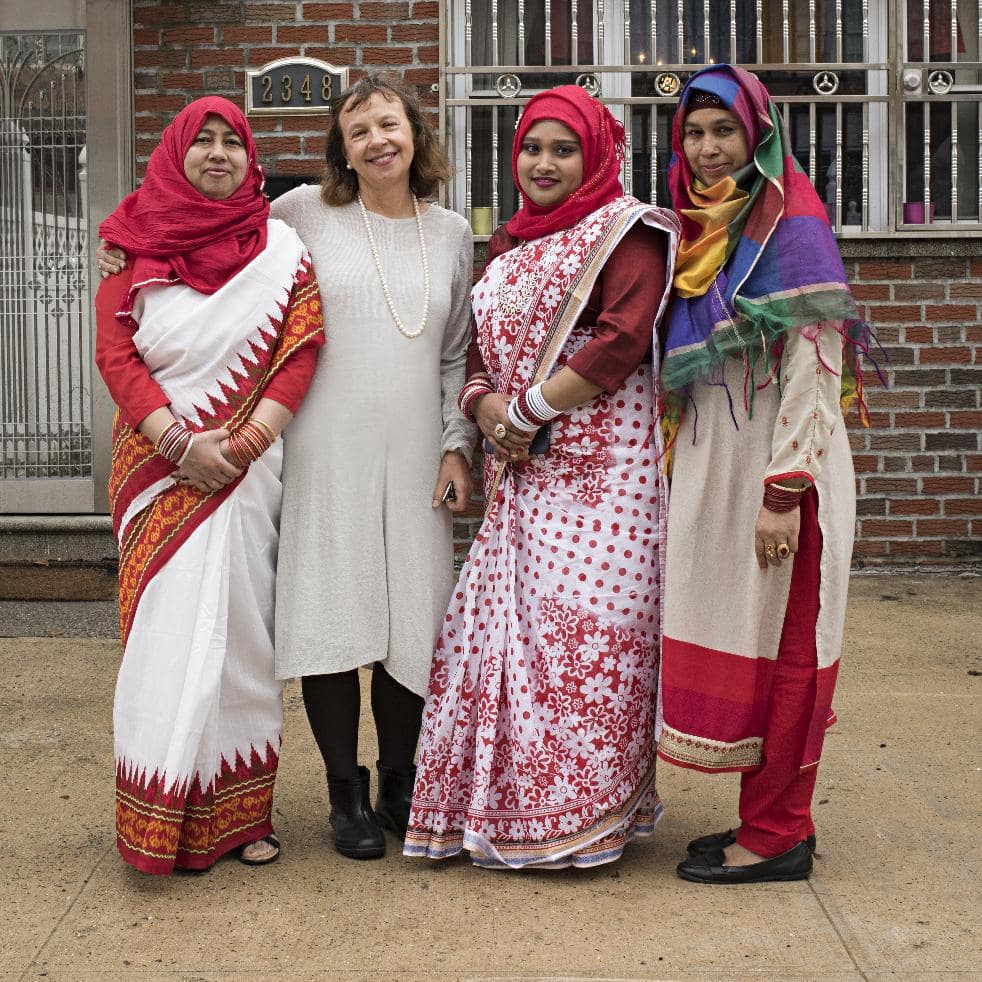Sapna NYC is a 501(c)(3) not for profit organization transforming the lives of South Asian immigrant women by improving health, expanding economic opportunities, creating social networks, and building a collective voice for change. We recognize that women are the backbone of our families and that by empowering women, we are impacting whole families and uplifting entire communities. We strive to increase access for the women in our community – access to services, access to knowledge and information, access to systems, and access to pathways for social mobility.50
Mission
Vision
Our vision is to promote health and social justice for South Asian immigrant women in New York City. We believe in a city and a country that celebrates the depth, diversity, and strength that immigrants bring and allows all voices to be heard.
Our history
Sapna NYC, formerly the Westchester Square Partnership (WSP), was founded in 2008 in response to the growing number of South Asian immigrant women affected by poverty, isolation, unemployment and low-level depression in the Bronx. In 2007, Dr. Alison Karasz, had received a grant from the National Institutes of Health (NIH) to conduct a needs assessment and design a culturally competent intervention for depression in South Asian women immigrants. Researchers, doctors, psychologists, and community members worked together on the project, which took place in the waiting room of a small Bronx health center. This project highlighted the need for services, leading Dr. Karasz and Dr. Jean Burg to create Sapna NYC as a new kind of non-profit that incorporates scientific research, clinical skills and the community to address issues. Our name, Sapna, meaning ‘dream’ in many South Asian languages reflects our commitment to working with women to help build a future and realize their dreams.
Located in the heart of the Bronx South Asian immigrant community, Sapna is the only community based organization serving this high need group with work spreading throughout all of NYC. In this dynamic, rapidly growing community, many new residents are culturally and linguistically isolated, with little access to healthcare and social services. At Sapna NYC, we believe that through access to information and education, women can be empowered to become changemakers in their communities. We provide these women with culturally competent, linguistically accessible programs and information, allowing them to access the services and information they need to not only survive, but to thrive in their new home country.
Who we serve
Sapna NYC serves low-income South Asian immigrant women. The women we serve are diverse in background, with varying education levels, age, culture, religion, and beliefs. However, as new immigrants they have many of the same struggles of learning a new culture, navigating a new city, and understanding new systems. As such, many of the women in our community are isolated andfind it very difficult to find linguistically accessible and culturally competent information from sources they trust.
There are almost no safe spaces for women to gather and share their concerns, struggles, and questions within the patriarchal society they live in. With anti-immigration and anti-Muslim sentiment on the rise, the community we work with is at risk and vulnerable not only to attacks from the administration, but also systematic misinformation and exploitation. South Asian women, in particular, do not have access to information that would allow them to protect themselves and their families. Sapna NYC addresses these issues, working with the community to assess their needs and create initiatives and programming accordingly.
A significant portion of our clients are from Bangladesh. NYC’s Bangladeshi population is among the fastest growing ethnic groups and according to the Asian American Federation’s report, there has been an 88% change from 2010 to 2015. Relative to other city residents they are more likely to be limited English proficient, with 53 percent of the population reporting limited proficiency. They are also more likely to be living in poverty and in overcrowded housing. As one of the only community-based organizations serving this population in NYC, and the only one in the Bronx, Sapna is a unique source of services and access for the Bangladeshi community.


